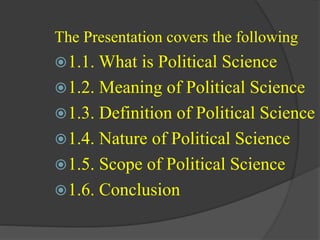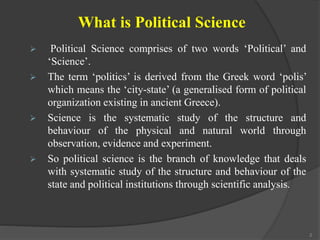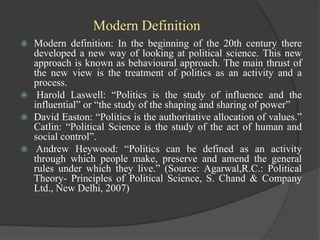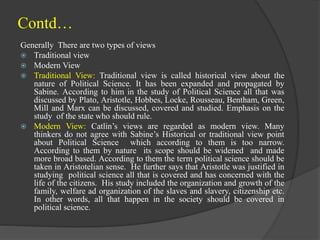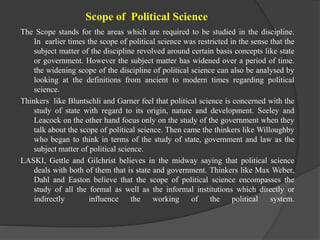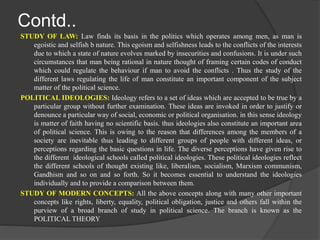Political science can be summarized as follows:
1) The document discusses the meaning, definition, nature, and scope of political science. It provides traditional and modern definitions of the field.
2) Political science is traditionally defined as the study of the state and government, but modern definitions view it as the study of all political activities and processes, including power dynamics and political behavior.
3) The scope of political science has expanded over time to include the study of individuals, political ideologies, international relations, and the relationship between states and individuals. It aims to understand political systems, institutions, and activities both empirically and normatively.
